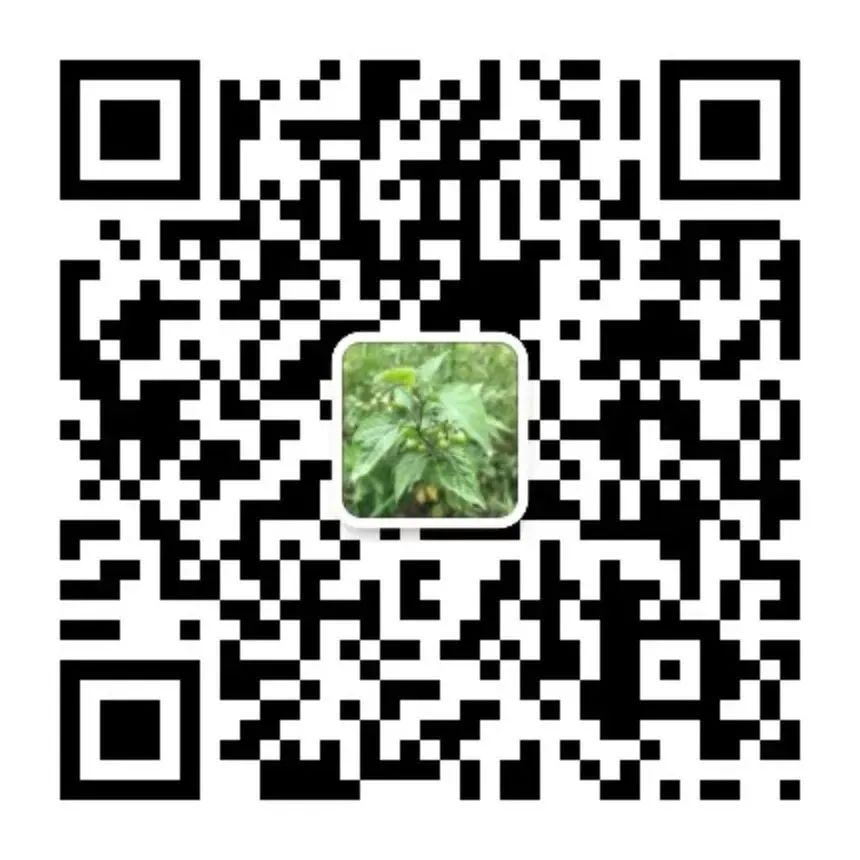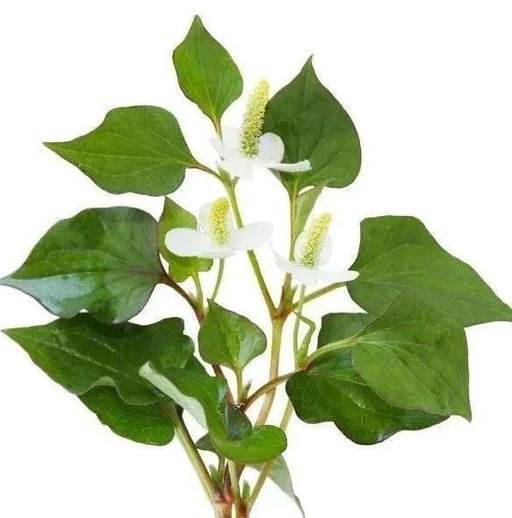Yuxingcao (Houttuynia cordata), originally known as Qicai, was described over a thousand years ago by Su Song in the Tang Dynasty: “It grows in damp places and can also spread in shady valleys. The leaves resemble buckwheat, are large, and the stems are purplish-red, with a fishy smell, commonly known as: Yuxingcao.”
Thus, Yuxingcao is named for its odor. Generally, before consumption, many people find its fishy smell unpleasant and hard to swallow. In fact, the fishy taste of Yuxingcao is classified as spicy among the five flavors, and many famous medicines like Danggui (Angelica sinensis) and Rougui (Cinnamon) also have this flavor. When used to stew meat, the meat becomes fragrant and spicy. Yuxingcao is similar; after being dried and boiled with water, it produces a fragrant and slightly astringent juice, a taste that pleases the palate and is non-irritating to the stomach. According to Commonly Used Folk Herbs in Zhejiang, it is even used to treat damp-heat type gastroenteritis.
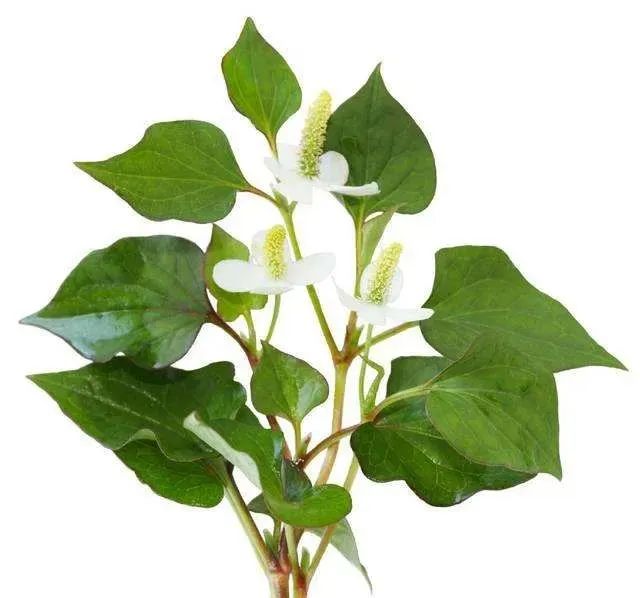
With a spicy flavor and a cooling nature, it can clear heat, especially lung heat. Since ancient times, when encountering diseases of the lung system such as fever, cough, chest pain, hemoptysis, and foul-smelling sputum, Yuxingcao has been a key medicine for treatment. Folk literature holds it in high regard.
1. Treating lung abscesses and multiple boils: Use three taels of Chou Mudan (Paeonia suffruticosa) whole herb and one tael of Yuxingcao. Boil in water and take. (Commonly Used Folk Herbs in Zhejiang)
Lung abscesses present with fever, cough, and chest pain. Chou Mudan helps dispel wind, detoxify, reduce swelling, and relieve pain.
2. Treating viral pneumonia, bronchitis, and colds: Use 6 grams each of Yuxingcao, Houpu (Magnolia officinalis), and Lianqiao (Forsythia suspensa), ground into powder, along with 30 grams of Sangzhi (Morus alba), boiled in water and taken with the powder. (From Jiangxi Herbal Medicine)
Houpu, like Yuxingcao, has a spicy flavor but is warming in nature, contrasting with the cooling nature of Yuxingcao. It is effective in drying dampness and resolving phlegm, alleviating fullness in the stomach. Lianqiao clears heat, detoxifies, reduces swelling, and disperses nodules. Sangzhi nourishes body fluids and treats wheezing and counterflow qi. Together, these four herbs treat the symptoms.
3. Treating cough and night sweats due to lung disease: Use 60 grams of Zhe Er Gen (Houttuynia cordata) leaves and one pig stomach. Place the leaves inside the stomach and stew for soup. Take one dose daily for three days. (From Guizhou Folk Prescription Collection)
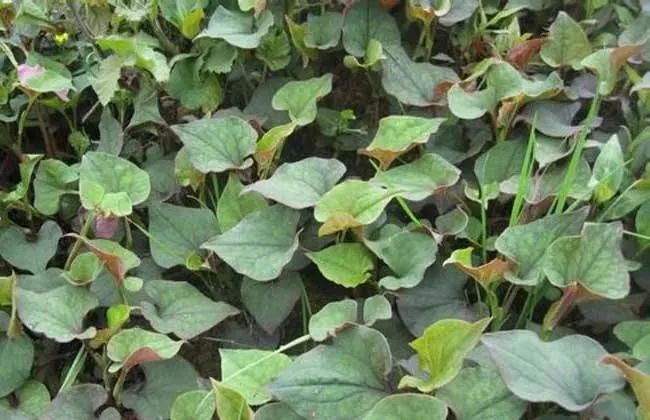
4. Treating acute bronchitis, tuberculosis, and cough with blood-streaked phlegm: Use 30 grams of Yuxingcao, 6 grams of Gancao (Licorice), and 30 grams of Cheqianzi (Plantago asiatica), boiled in water and taken.
Cheqianzi and Yuxingcao both have the ability to clear heat, resolve phlegm, and promote urination.
5. Treating chronic sinusitis: Crush fresh Yuxingcao, extract the juice, and drip into the nose several times a day. Additionally, use 21 grams of Yuxingcao, boiled in water and taken. (From Shanxi Herbal Medicine)
Yuxingcao is also effective in treating gastrointestinal disorders. Due to its diuretic properties, it can also treat urinary tract infections.
6. Treating gastroenteritis: Use 60 grams of Yinianpeng (Eclipta prostrata) and 30 grams each of Yuxingcao and Longyacao (Lonicera japonica). Boil in water, sweeten with honey, and take twice daily. (Commonly Used Folk Herbs in Zhejiang)
Yinianpeng can detoxify and stop bleeding. Yuxingcao and Longyacao both have the ability to treat gastroenteritis. Together, they address the symptoms.
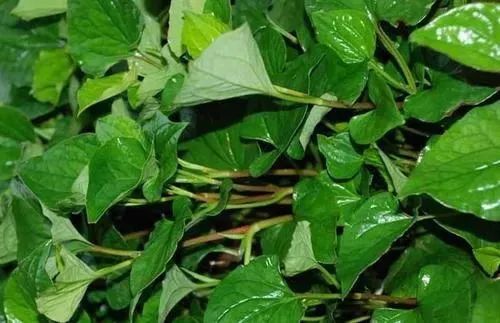
7. Treating hemorrhoids: Use Yuxingcao, boil in water and wine, and take three doses. The residue can be used for steaming and washing; if there is pus, it will drain, and if not, it will resolve on its own. (Dian Nan Ben Cao)
8. Treating heat strangury, leukorrhea, and white discharge: Use 24 to 30 grams of Yuxingcao, boiled in water and taken. (Jiangxi Folk Herbs)
The above prescriptions for treating diseases with Yuxingcao are just selected formulas. The uses of Yuxingcao in Modern Practical Chinese Medicine are even more distinctive: “Fresh leaves: When heated and applied externally, they can be used as a poultice for treating sores and eczema. For conditions like scabies, swelling, eczema, and low back pain, they can be used in bath water. Chewing the root can prevent the onset of angina pectoris in coronary heart disease.” It has many excellent effects.
Reminder: Everyone’s physical condition is different; the formulas provided in this article should be adjusted according to individual conditions. It is recommended to seek guidance from a professional doctor. (Images from the internet; please contact for removal if there is any infringement.)

Scan to follow me!

